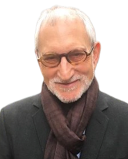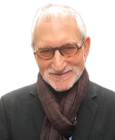Wisdom
You Can't Walk Where There Is No Ground
West African Wisdom and the Culture of Speed
Posted March 23, 2019
Early during my field research among Songhay healers in the West African Republic of Niger I often tried to accelerate the pace of my education. Like most neophyte scholars, I had a limited amount of research time and a rapidly dwindling research budget. Would I be able to generate enough data to complete my thesis and earn my doctorate?
My teacher of things Songhay, Adamu Jenitongo, had a very different view about how I should learn about Songhay healing. He insisted on teaching me at what seemed--to me, at least--a glacial pace. We routinely held our middle of the night study sessions in his straw hut, a space that he filled with precious ritual objects—hatchets encased in red leather with bells attached to the hatchet heads; tiny sandals for the Atakurma, the elves of the bush; the healer's lolo or staff of power, a four-foot iron pole also encased in red leather on to which a score of blood caked rings, larger

preceding smaller had been long ago been pushed into position. In this wondrously evocative setting that begged so many “important” questions, Adamu Jenitongo insisted that we take very small steps onto the path of Songhay healing. Typically, we might take up several lines of an incantation—for perhaps 20 minutes.
Well, that’s enough for now,” he’d say. “Come back tomorrow night.”
“But I need to know what those lines mean.”
He’d laugh. “You’re always in such a hurry. It takes time to learn these things. I’m building for you a foundation and we need to make sure it’s as solid as the ground. It takes a long time to build a good foundation.”
“But I don’t have the time.”
“Then you must patient. When things are right, your path will open. Always remember this, my son: You can’t walk where there is no ground.”
In a world in which the culture of speed requires quick and effortless results, it is difficult to adhere to Adamu Jenitongo’s ideas about learning. Do any of us have the time to create an existential foundation? Do any of us take the time to slowly develop our being in the world? Many scholars believe that the culture of speed is creating a stress-saturated society in which people are increasingly alienated. In a recent Chronicle of Higher of Education essay, “Speed Kills,” philosopher Mark Taylor (2014) argued that the spread of technology has had unintended consequences. Taylor suggested that social media was developed to connect people and create community bonds. In realit,y social media has resulted in the isolation of individuals in hermetically sealed spaces of like-minded people who display little curiosity about the “outside” world. In the age of speedy connection and time-constraints, then, there has been widespread disconnection. Who has the time to read, reflect, think critically, engage in face-to-face conversation or, for that matter, build an existential foundation for living well in the world? (See Turkle 2016)
I see the impact of the culture of speed among my students. Many of them combine a full course load with two or more jobs. They have little time for reading, day-dreaming, or thinking. Attached to their phones, they surf the Internet as they walk, talk to classmates, or sit in my classes. For many of my students, life in the fast lane compels them to cut corners –get the best possible result for the least amount effort. In the culture of speed, is there ever enough time to complete the entire book or go to the library to find materials not on the course reading list? In this increasingly stressful environment, many of my students seem restless and appear to be anxious and fragile.
Is such a life sustainable?
Is it possible to live well in the contemporary world?
Through the proliferation of technolog,y we have constructed a sophisticated social edifice, but have we neglected its foundation? As my wise West African teacher once told me: “If a structure has no foundation, it eventually crumbles to the ground.”
In forthcoming blog posts, I intend the showcase the foundational knowledge of non-western elders, who possess a deep and varied practical wisdom that shows us the possibility of living well in a complex and unsettling world.
References
Taylor, Mark (2014). “Speed Kills: Fast Is Never Fast Enough.” Chronicle of Higher Education, October 20, 2014.
Turkle, Sherry (2016). Reclaiming Conversation: The Power of Talk in the Digital Age. New York:
Penguin Books.


